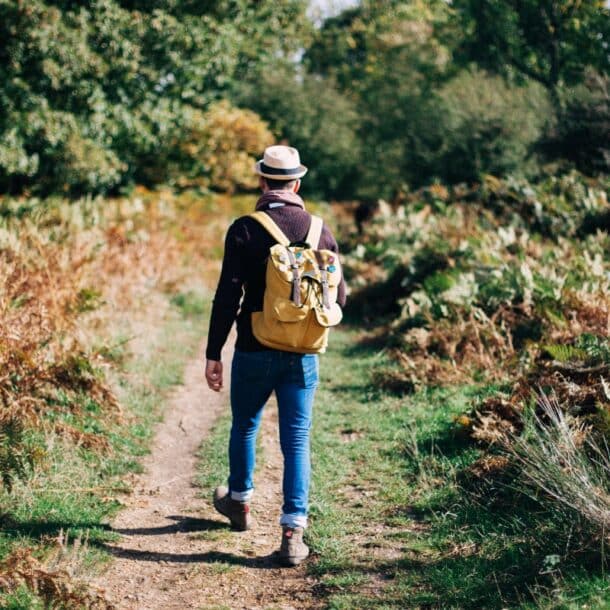
How to Support Your Partner in Addiction Recovery
When facing a loved one with an addiction, it can be hard to recognize the signs and symptoms from an outside perspective. Substance use disorder is often a difficult topic of discussion; at times, you may feel like there is no way to support your partner. It is important to understand that addiction is not a choice that your loved one has made, but rather a disease of the brain.
Understanding addiction and substance abuse disorder is the first step you should take when trying to help a loved one. There are many different types of programs to help with recovery but the first choice might not always be the best fit. Recovery is a lifelong journey that your partner will battle with each day. Being a part of their life can take a toll on you as well. Supporting them through the recovery process and helping them to find a program that suits their needs can go a long way.
Recognizing the Signs of Addiction
Recognizing the signs of addiction can be difficult from an outside perspective. Addiction is different for every person and so are the warning signs. When attempting to recognize the signs of addiction, it is important to remember that you may be hypersensitive to your loved one’s behaviors. Try not to over-analyze the potential warning signs, but be aware when general signs of addiction do begin to show. Some of these signs may include, but are not limited to:
- A craving for alcohol or a substance: Does your partner consistently have cravings for alcohol or substances and do they want or “need” to drink/use, especially in the evenings?
- Drinking/using at all points of the day: Do you notice that your partner is drinking/using at all points of the day, in the mornings, afternoons, and during the evening? Is the number of engagements per day increasing?
- Extreme consumption of alcohol/substance use: Do you notice that when your partner drinks they are consuming an excessive amount of alcohol? When your partner drinks do they usually have more drinks than others around them? Do you notice your partner using substances more and more frequently?
- Behavioral Changes: When your partner uses a substance, do you notice a change in their behavior? This can include being more irritable when they are not drinking/using, anger towards those who point out their excessive usage, or even being extremely loving or overly kind when drinking/using.
Approaching the Concern
When a loved one is struggling with addiction, it can be difficult to bring up the topic and address your concerns. This can be especially hard if you are the first to notice these behaviors. When addressing this potential issue, remember that this is just as difficult for them to address as it can be for you to bring up.
When bringing up addiction or substance use, it is best to avoid tones that can come off as blame, shame, or anger. Keep in mind that your partner may lash out and deny these observations. If this is the case, it may be best to take a step back and allow them time to process the conversation.
Being mindful of your loved one’s emotions is extremely important. Whether they are aware of a potential addiction occurring or not, there will likely be various emotions that arise from this initial conversation. Allow them the time and space needed to process this information and follow up with them later to re-evaluate.
Offering Support
The best way to offer support is to be understanding and listen to what your partner has to say. They may need assistance in finding a recovery program that suits their needs. A great way to support a loved one is by attending family therapy sessions and reminding them of your support throughout their recovery journey.
Healing Pines Recovery offers family therapy sessions that allow you to be an active part of your partner’s recovery. Family therapy can help to improve the communication between family members and loved ones to strengthen the relationship and develop a better insight into the recovery process.
Addiction recovery can be an intimidating journey. Try to remind your partner that they are not alone. Substance abuse can take a toll on all family members and surrounding peers. Providing support can help everyone overcome this process. For more information on how substance use disorders affect the family, please refer to this journal published by Social Work Public Health. While the journey may be difficult, your support can go a long way.
Supporting those we love can be difficult, especially when they are struggling with addiction or substance use disorder. When it comes to helping a partner, it is important to understand that you are overcoming this obstacle together. There are many times that you or your partner may feel as if there is no hope, however, there are many resources available to help.
Healing Pines Recovery, located in Elizabeth, CO, is a treatment center that specializes in helping men throughout their recovery journey. Healing Pines offers support to men who are new to treatment and those who are returning after a relapse. There are many different programs that are offered to help suit the needs of each individual.
If you or a loved one is in need of treatment or assistance in managing their addiction, contact Healing Pines Recovery at (720) 575-2621.
Paul Leafstedt
Paul was born and raised in the beautiful state of Colorado. He went to college in California at CAL Poly Pomona, majoring in Mechanical Engineering. Being a person in recovery and always finding fulfillment in helping others succeed, Paul co-founded a treatment center in California with 4 other partners. Paul came back to Colorado to continue his journey in the field of addiction, and to share his vision for Healing Pines Recovery. “Colorado is such a magical place for me, its natural beauty and peace lend itself for the perfect environment to connect with yourself and others. Healing Pines is different, it’s real, you can feel it. What you see is what you get here. This is a safe place to dig deep and be vulnerable, to re-discover yourself, what the world has to offer and what you have to offer the world.”Begin Your Journey & Escape Addiction
The first step can be the hardest. Fill out the form or call us at (720) 575-2621. You will be connected with a Healing Pines Recovery specialist who can answer your questions and help you get started.
Let Us Help You
Speak to Someone Right Now







